Insufficient sleep in every US county
Sleep insufficiency is the condition of insufficient duration or quality of sleep to sustain proper attention, performance, and health.
Insufficient sleep syndrome happens when you regularly fail to get adequate sleep at night. It results from preferences you make that move your bedtime later than when your body needs you to fall asleep. You usually are ignorant that you require more sleep than you are getting. Some typical instances are remaining up to finish a film and using your gadgets in bed to keep you from getting sleep.
Insufficient sleep can also be connected to causes such as light pollution, commute time, nightlife, and the character of the dominant businesses and occupations in the county, with some, may requiring more extended hours of work and home duties than others. Attempting to catch up on your sleep over the weekends is usually not sufficient to make up for your insufficient sleep the rest of the week.
Table of Contents
It’s estimated that sleep insufficiency affects almost 1/3 of American adults.
The map below created by Bo McCready uses data from the Behavioral Risk Factor Surveillance System, a national survey covering a variety of health factors. The survey defines insufficient sleep, and darker blue represents a lower percentage reporting insufficient sleep.
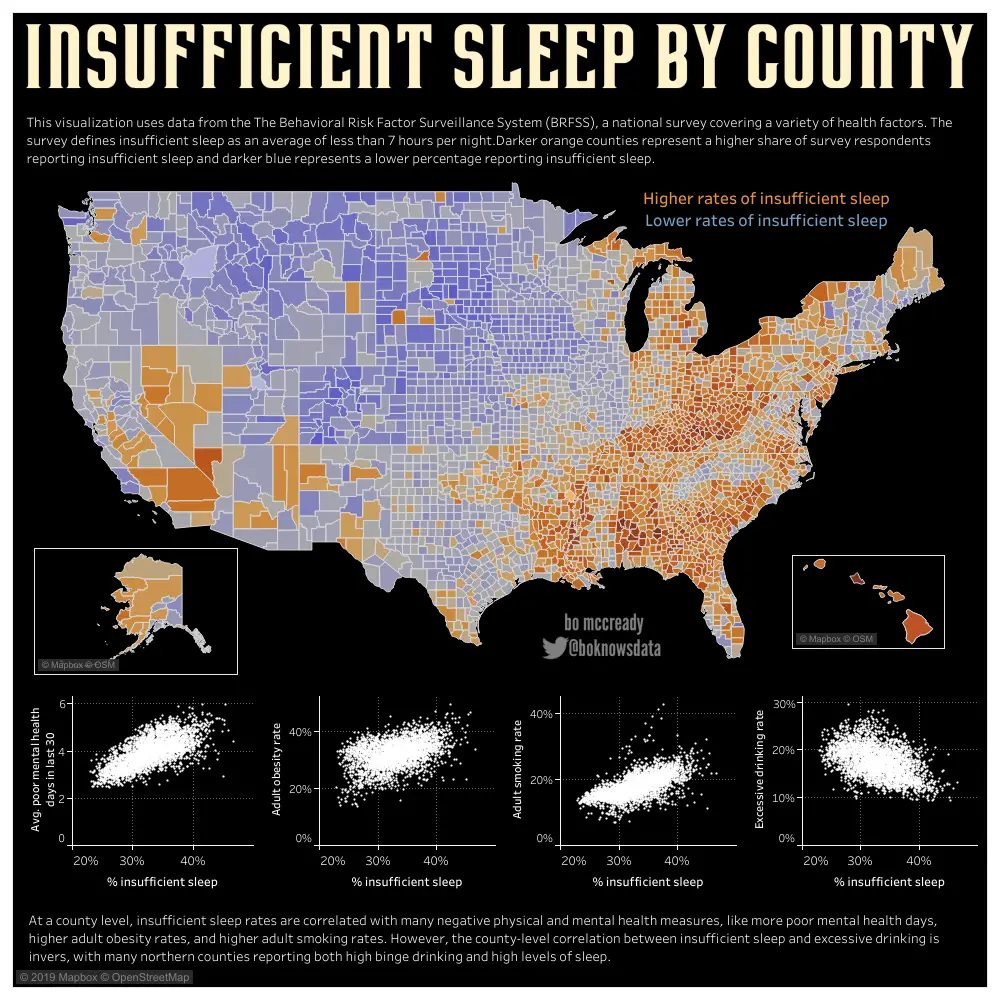
Symptoms of insufficient sleep syndrome
- Habitually spend less than eight hours in bed at night.
- Have a family member and close friend notice that they require much more rest than they get.
- Have attention and concentration difficulties, decreased energy level, distractibility, crankiness, or exhaustion.
- Have their signs improve if they sleep for a more extended period.
- Be free of any other medical or sleep disturbances that might provoke their signs of excessive sleepiness.
Types of Sleep Deprivation
Sleep insufficiency may be classified differently depending on an individual’s circumstances.
- Acute sleep insufficiency refers to a brief period, usually several days or less when an individual has a substantial decrease in their sleep time.
- Chronic sleep insufficiency or insufficient sleep syndrome is determined by the American Academy of Sleep Medicine as shortened sleep that lasts for three months or longer.
Sleep and Disease Risk
The consequence of sleep insufficiency may be poor health. Many studies have shown that individuals who sleep poorly are at more significant risk for many illnesses and health problems. The most common of these is obesity, diabetes, heart disease, hypertension, mood disorders, mental health disorders, hormonal abnormalities, immune disorders, alcohol, and drug addiction. As a consequence, it leads to low life expectancy.
Data from three extensive cross-sectional epidemiological analyses show that sleeping 5 hours or less per night increased mortality risk by approximately 15% for all reasons.
The maps below show the positive correlation between the rate of insufficient sleep and other negative physical and mental health measures, like poorer mental health days, higher obesity, and smoking rates.
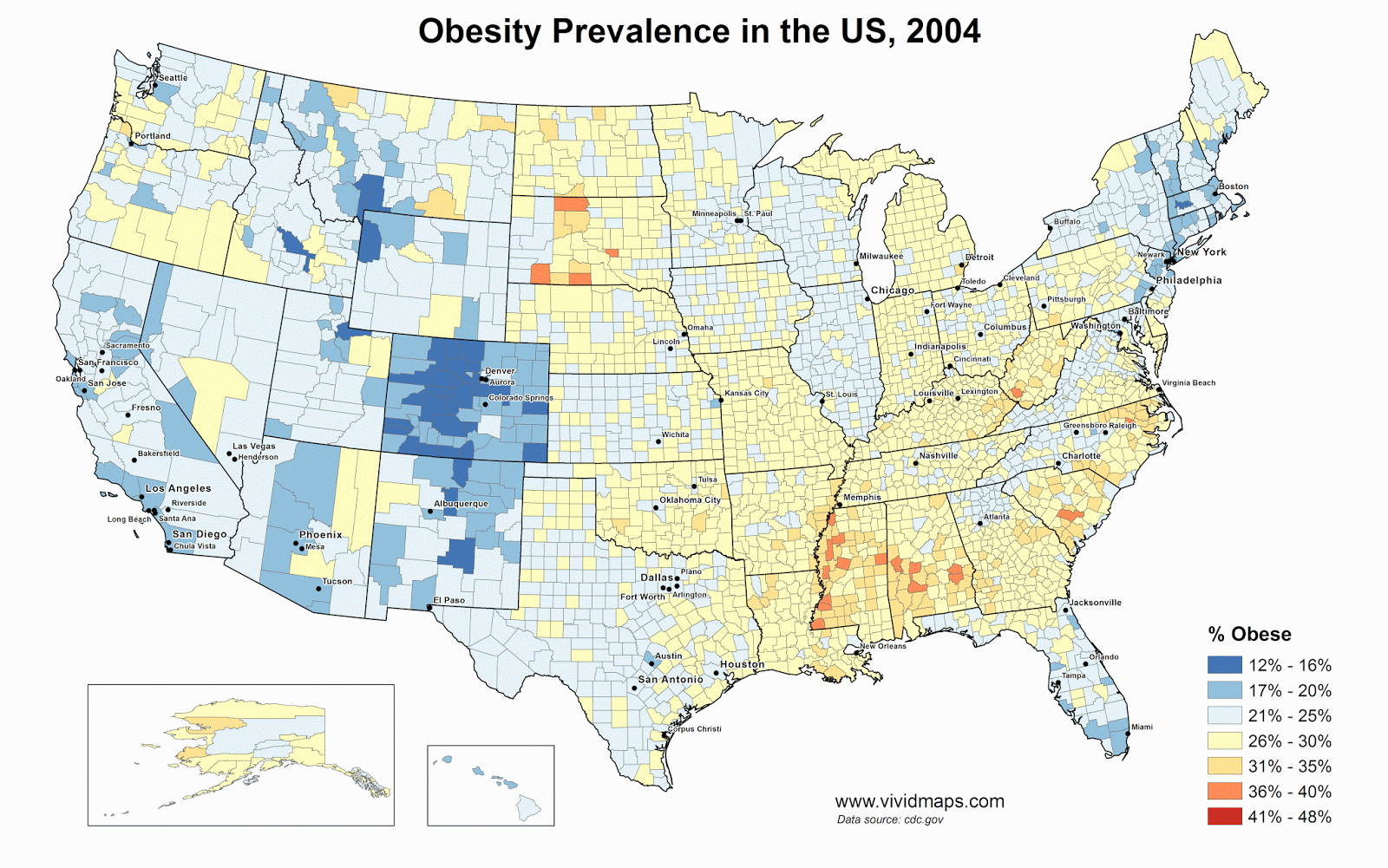

Moreover, high sleeplessness in American countries is relatively well correlated with high rates of poverty and weakly associated with high-population counties. There is very little connection to the country’s overall urban/rural nature or mean commuting time to work. Not shown other factors associated with poverty (median income, crime rate, child mortality rate) are more weakly correlated than the poverty rate itself. There is also a strong correlation with race.
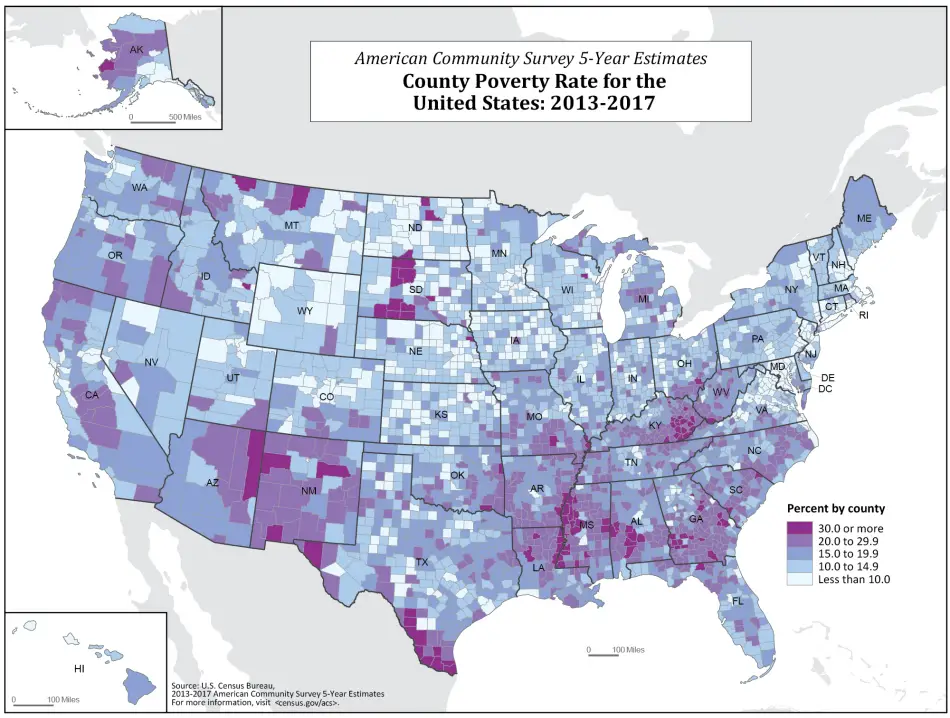
How To Prevent sleep insufficiency
- Making sleep a priority (have a constant sleep schedule; set time boundaries in your work and social life; have a bedtime routine, including reading, dressing on pajamas, brushing teeth, ext)
- Customize and design your bedroom environment
- Evade things that can interrupt sleep (alcohol, caffeine, electronic devices, naps)
- Getting systematic sunlight exposure during the day to keep a healthy circadian rhythm
How many hours of sleep are enough for good health?
The amount of sleep you require depends on diverse factors, primarily your age.
| Age group | The recommended amount of sleep |
|---|---|
| Infants 4 – 12 months | 12 – 16 hours per 24 hours, including naps |
| 1 – 2 years | 11 – 14 hours per 24 hours, including naps |
| 3 – 5 years | 10 – 13 hours per 24 hours, including naps |
| 6 – 12 years | 9 – 12 hours per 24 hours |
| 13 – 18 years | 8 – 10 hours per 24 hours |
| Adults | 7 or more hours a night |






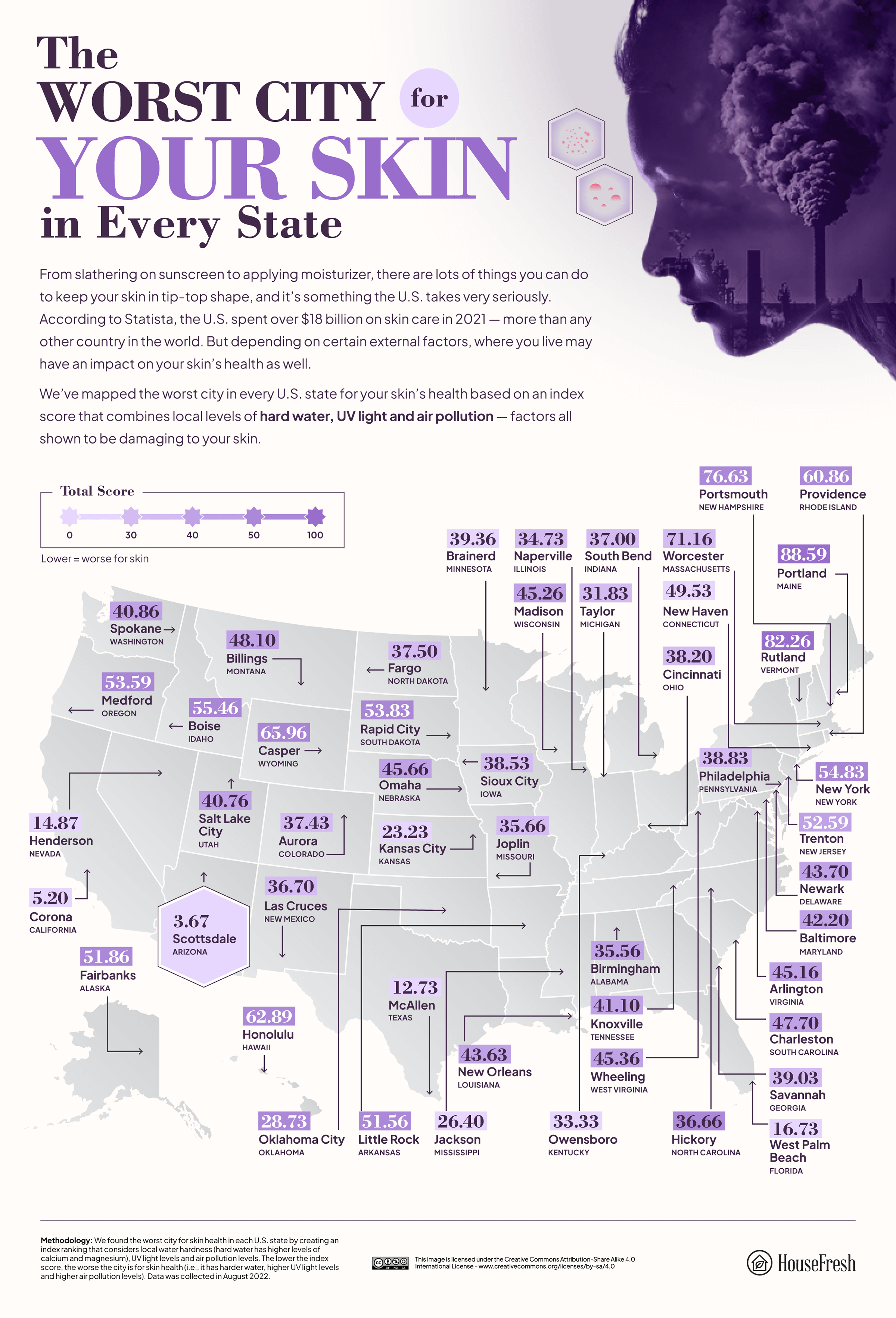

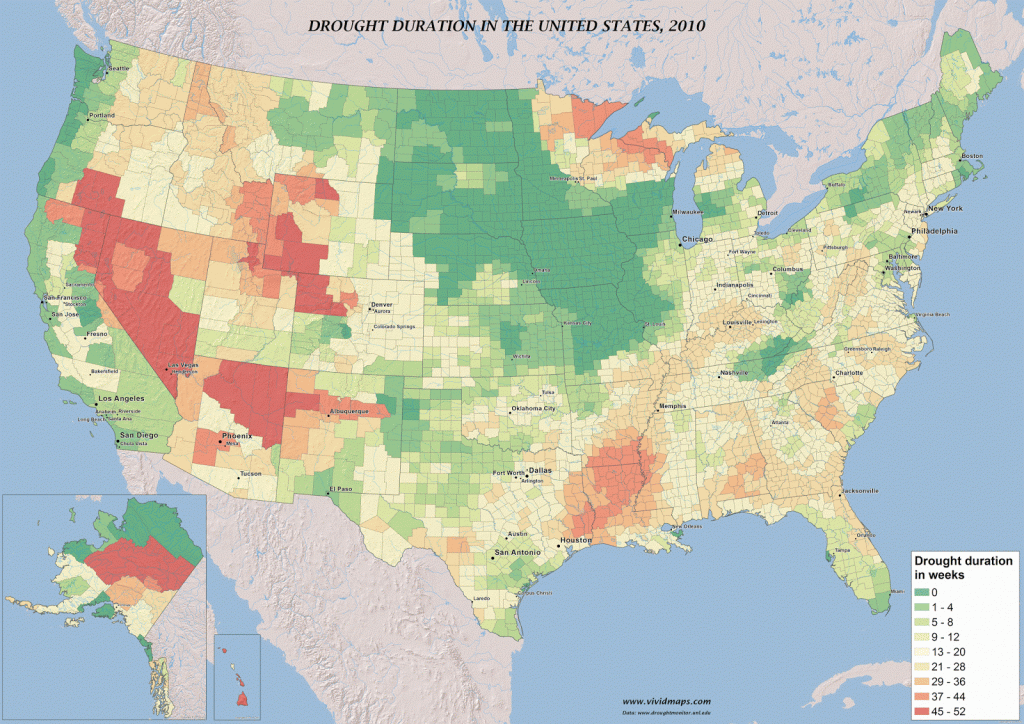
I singlehandedly account for Pennsylvania’s sleep deprivation